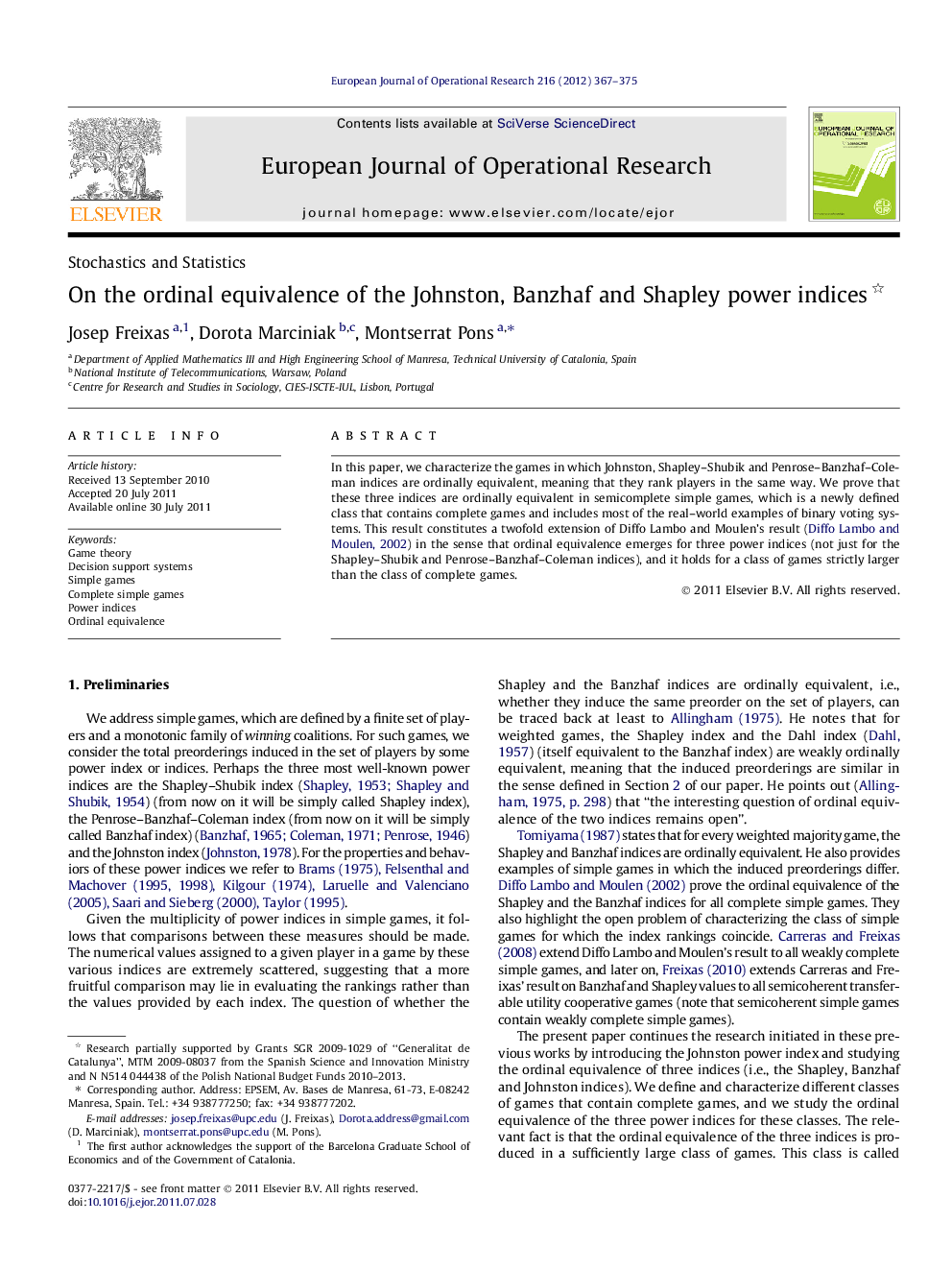| Article ID | Journal | Published Year | Pages | File Type |
|---|---|---|---|---|
| 480175 | European Journal of Operational Research | 2012 | 9 Pages |
In this paper, we characterize the games in which Johnston, Shapley–Shubik and Penrose–Banzhaf–Coleman indices are ordinally equivalent, meaning that they rank players in the same way. We prove that these three indices are ordinally equivalent in semicomplete simple games, which is a newly defined class that contains complete games and includes most of the real–world examples of binary voting systems. This result constitutes a twofold extension of Diffo Lambo and Moulen’s result (Diffo Lambo and Moulen, 2002) in the sense that ordinal equivalence emerges for three power indices (not just for the Shapley–Shubik and Penrose–Banzhaf–Coleman indices), and it holds for a class of games strictly larger than the class of complete games.
► A new class of simple games (semicomplete games) is defined. ► In these games, Johnston, Shapley and Banzhaf indices are ordinally equivalent. ► The class of semicomplete games is larger than the class of complete games. ► The US federal system, which is not a complete game, is a semicomplete game. ► The main results are deduced by studying some preorderings on the set of players.
